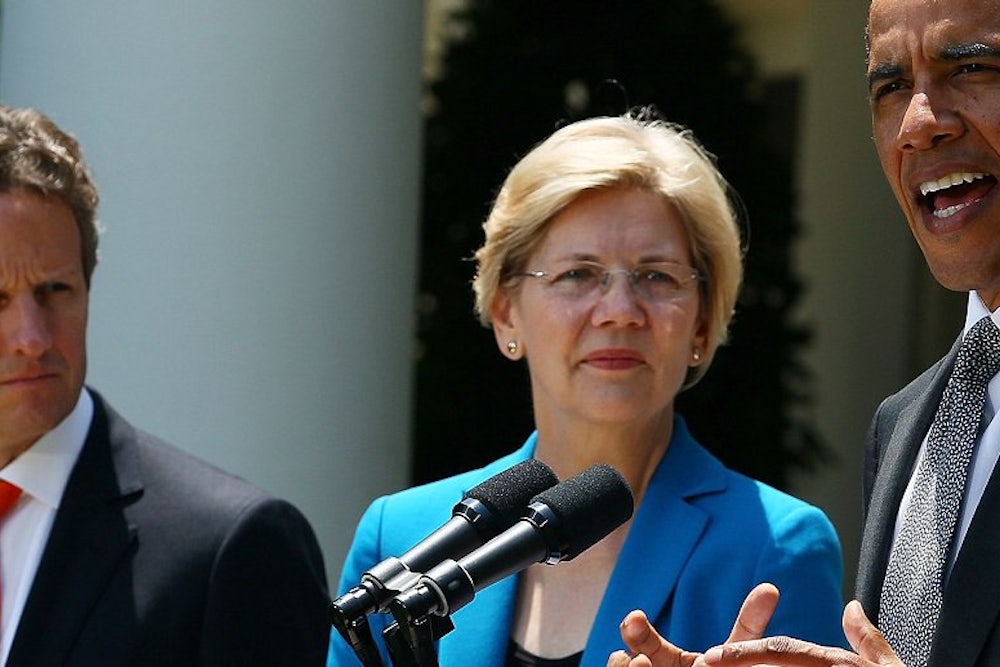On Friday, President Barack Obama sat down with Yahoo’s Matt Bai to promote the Trans Pacific Partnership and delivered his sharpest rebuke yet to Senator Elizabeth Warren and other liberals who oppose the trade deal.
“The truth of the matter is that Elizabeth is, you know, a politician like everybody else,” he said in the interview, which was published Saturday. “And you know, she’s got a voice that she wants to get out there. And I understand that. And on most issues, she and I deeply agree. On this one, though, her arguments don’t stand the test of fact and scrutiny.”
Bai correctly interpreted these comments as some of the harshest words the president has used against his liberal allies. But, at the same time, they are rather innocuous: Warren is a politician and is susceptible to outside pressure like anyone else. Liberals should remember that.
When Warren speaks about former Secretary of State Hillary Clinton, she often references a battle over a financial regulatory bill in the late 1990s and early 2000s. A law professor at the time, Warren strongly opposed the bill. But the economic team in President Bill Clinton’s White House was divided on it. Warren met with Hillary Clinton, then the first lady, and convinced her to oppose the bill as well. Hillary then convinced her husband not to sign the legislation at the end of his presidency.
Yet just a few months later, Clinton, as a senator from New York, the financial capital of the world, reversed her position. The bill passed and President George W. Bush signed it. “There were a lot of people who voted for that bill who thought that there was going to be no political price to pay,” Warren told The New Yorker’s Ryan Lizza recently. Warren wants to make sure that doesn’t happen again.
The fact that Hillary, the first lady, and Hillary, the New York senator, had opposite opinions of the bill shouldn’t have surprised Warren that much. As first lady, Hillary had no constituents to worry about. But as a senator, Hillary suddenly had millions of constituents with jobs either directly or indirectly connected to the financial industry. It would be great if she—and all politicians for that matter—always voted on principle and were immune from lobbying pressure. But that isn’t the case.
That’s true for Warren as well. The medical device industry is one of the most important industries in Massachusetts, and Warren has gone to bat for the industry multiple times. For instance, she is one of the few Democrats that supports the repeal of the medical device tax, which is part of Obamacare. In February, she introduced a bill to require pharmaceutical companies that pay a penalty and break the law to reinvest a percentage of that penalty into the National Institute of Health. But it has a loophole: Medical device manufacturers are exempt from the requirement unless they make drugs as well.
If liberals want to see a politician who always votes with his conscience, they need to look no further than Hillary’s one current challenger, Vermont Senator Bernie Sanders. When Sanders announced his presidential run, Matt Taibbi, writing at Rolling Stone, explained:
Sanders genuinely, sincerely, does not care about optics. He is the rarest of Washington animals, a completely honest person. If he's motivated by anything other than a desire to use his influence to protect people who can't protect themselves, I've never seen it. Bernie Sanders is the kind of person who goes to bed at night thinking about how to increase the heating-oil aid program for the poor.
When Sanders sat down with ABC News’s George Stephanopoulos, the host noted that he “can hear the Republican attack ad right now: He wants America to look more like Scandinavia.” To which Sanders responded, “That’s right. That’s right. What’s wrong with that?” That is a politician who doesn’t care about his image.
It’s just about impossible to imagine Warren answering a question that way. She and her staff closely guard her image. For instance, she is notorious for not speaking to reporters in the U.S. Capitol, unlike most of her colleagues. It’s very rare that she strays off message.
That doesn’t mean that her votes and policy positions aren’t principled most of the time. I have no reason to believe that she is opposing the trade deal for political reasons. I think she and the president simply disagree on the issue. But as liberals criticize the TPP as a sop to big business and the U.S. Trade Representative for its corporate ties—both of which may be true—it’s worth remembering that Warren herself is not immune to pressure.
